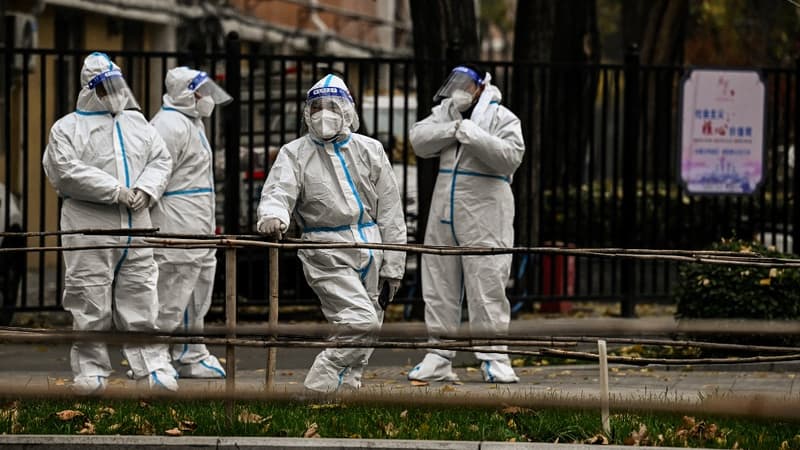Several Chinese cities, including Urumqi in the far west of the country, announced an easing of coronavirus-related restrictions on Sunday, following the example of other cities this week.
As China struggles to adjust its ‘covid zero’ policy after violent protests, Urumqi, the capital of the Xinjiang region, will reopen shopping malls, markets, restaurants and other venues starting Monday, ending months of strict lockdown.
No more screening tests for transportation.
Residents of the city of Zhengzhou, home to the world’s largest iPhone factory and rocked by violent protests last month, will no longer have to present drug test results to take public transportation, taxis or go to “high-rise areas.” public”.
These tests will also not be necessary to take public transport in Shanghai, the economic capital, in Nanning, capital of Guangxi province, or in Wuhan, where the pandemic began in 2019. These cities thus follow the example of Changdu and Tianjin or Shenzhen , in the south of the country.
Authorities in Haizhu district in the city of Guangzhou, where fighting broke out last month, said it was no longer necessary for people without symptoms to get tested unless they belong to certain special groups, such as front-end workers. line.
In Beijing on Saturday, authorities said the purchase of medicines for fever, cough and sore throat no longer requires registration.
Limits of the “zero Covid” policy
The pride of President Xi Jinping, the “zero covid” policy has reached its limit in a context of sharp economic slowdown and the impatience of the population while the rest of the world has more or less got used to living with the virus. It is at the origin of a wave of protests unprecedented since Xi Jinping came to power in 2012, and perhaps even since the Tiananmen Square uprising in Beijing in 1989, bloodily suppressed.
At the moment, the easing measures vary from one region to another. But the communist regime is expected to announce changes to nationwide testing and allow positive cases and close contacts to isolate at home under certain conditions.
Despite this easing, many experts believe China is unlikely to start a meaningful reopening before March, given the need for increased vaccinations, especially among the elderly population.
“While there have been many changes at the local level in covid policies of late, we do not interpret these as China abandoning the ‘covid zero’ policy,” Goldman Sachs said in a note on Sunday.
Source: BFM TV


